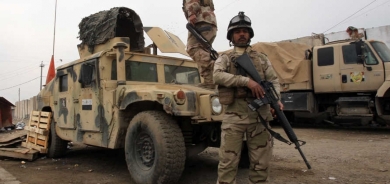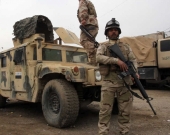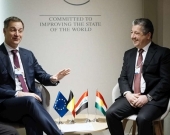Other view: We cannot underestimate the savagery that is ISIS

[The Islamic State of Iraq and Syria ] members like to think of themselves as good Muslims, but that’s as ludicrous as the views of the Nazis who thought of themselves as good Christians.
A particular target of ISIS in recent weeks has been the Yazidis of northern Iraq, who practice an ancient religion akin to Zoroastrianism. Fortunately, most Yazidis were able to escape the mountains where they had been trapped and take refuge among the Kurds.
U.S. airstrikes have helped protect the Kurds from ISIS forays, for now. But what should be our long-term strategy? Whom should we aid and how? These are questions that must be considered carefully before we make any major commitments.
The situation is especially dicey in Syria, where the two strongest forces are the Assad government and ISIS. Attempts to arm the moderate opposition backfired when extremists overran the moderates’ positions and took the weapons. ISIS fighters are known to be using U.S. weapons.
In Iraq, the larger question is the future of that nation. The Kurds, an Aryan people who practice Sunni Islam, are virtually independent of the central government and many would like to formalize independence.
The difficulty facing any government in Baghdad is blending harmoniously the interests of the Kurds, the Sunni Arabs who dominate the middle of the country, and the Shia Arabs who control the south and are a majority overall. Would a loose confederation, or even three independent nations, be more stable, and therefore better able to resist extremism?
The immediate problem is to prevent ISIS from overrunning either of the two nations in its name. This may mean air strikes or intelligence sharing or advisors. It must not, however, mean an Americanization of the conflict.














